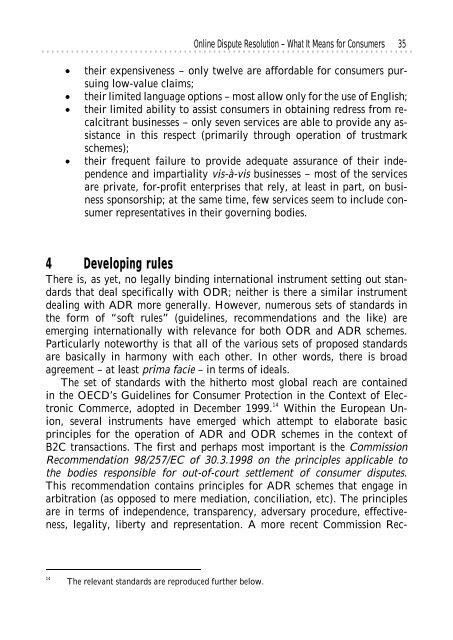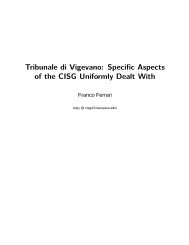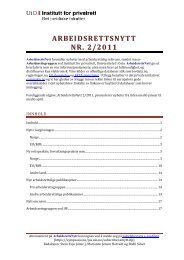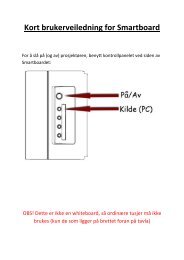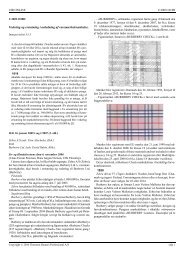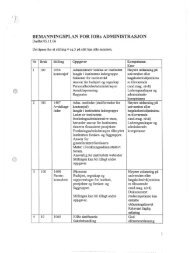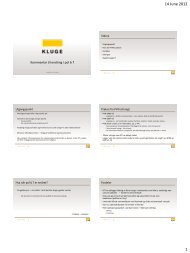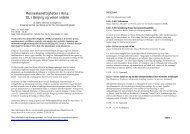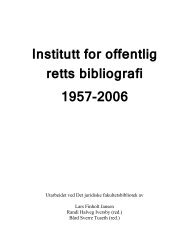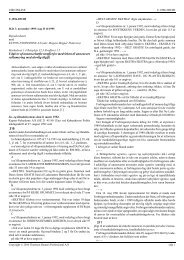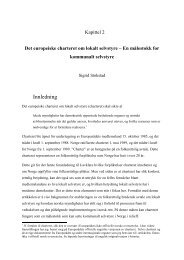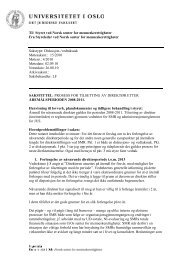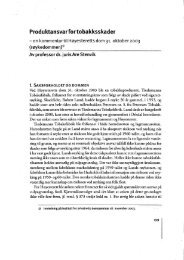Lee A. Bygrave (red.) YULEX 2002 - Universitetet i Oslo
Lee A. Bygrave (red.) YULEX 2002 - Universitetet i Oslo
Lee A. Bygrave (red.) YULEX 2002 - Universitetet i Oslo
Create successful ePaper yourself
Turn your PDF publications into a flip-book with our unique Google optimized e-Paper software.
............................................................................<br />
Online Dispute Resolution - What It Means for Consumers 35<br />
• their expensiveness – only twelve are affordable for consumers pursuing<br />
low-value claims;<br />
• their limited language options – most allow only for the use of English;<br />
• their limited ability to assist consumers in obtaining <strong>red</strong>ress from recalcitrant<br />
businesses – only seven services are able to provide any assistance<br />
in this respect (primarily through operation of trustmark<br />
schemes);<br />
• their frequent failure to provide adequate assurance of their independence<br />
and impartiality vis-à-vis businesses – most of the services<br />
are private, for-profit enterprises that rely, at least in part, on business<br />
sponsorship; at the same time, few services seem to include consumer<br />
representatives in their governing bodies.<br />
4 Developing rules<br />
There is, as yet, no legally binding international instrument setting out standards<br />
that deal specifically with ODR; neither is there a similar instrument<br />
dealing with ADR more generally. However, numerous sets of standards in<br />
the form of “soft rules” (guidelines, recommendations and the like) are<br />
emerging internationally with relevance for both ODR and ADR schemes.<br />
Particularly noteworthy is that all of the various sets of proposed standards<br />
are basically in harmony with each other. In other words, there is broad<br />
agreement – at least prima facie – in terms of ideals.<br />
The set of standards with the hitherto most global reach are contained<br />
in the OECD’s Guidelines for Consumer Protection in the Context of Electronic<br />
Commerce, adopted in December 1999. 14 Within the European Union,<br />
several instruments have emerged which attempt to elaborate basic<br />
principles for the operation of ADR and ODR schemes in the context of<br />
B2C transactions. The first and perhaps most important is the Commission<br />
Recommendation 98/257/EC of 30.3.1998 on the principles applicable to<br />
the bodies responsible for out-of-court settlement of consumer disputes.<br />
This recommendation contains principles for ADR schemes that engage in<br />
arbitration (as opposed to mere mediation, conciliation, etc). The principles<br />
are in terms of independence, transparency, adversary procedure, effectiveness,<br />
legality, liberty and representation. A more recent Commission Rec-<br />
14 The relevant standards are reproduced further below.


